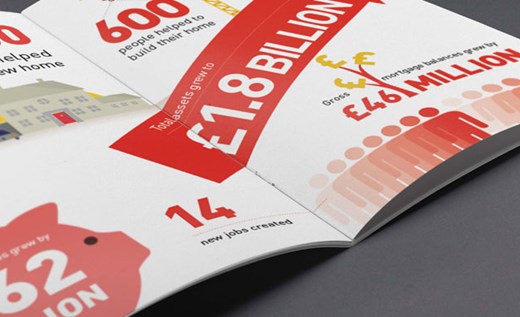Northern Ireland’s latest House Price Index reveals resilience amidst uncertain times
During the third quarter of the year, despite house prices in Northern Ireland remaining stable, the housing market continues to cool with weakening demand, buyer enquiries and new listings coming onto the market as the wider economic climate begins to bite.
Findings from the latest Northern Ireland Quarterly House Price Index, produced by Ulster University, shows this price stability emphasises the unique dynamics of the Northern Ireland market, which remains resilient amid broader economic challenges faced by other UK regions.
Nevertheless, while the market has displayed relative strength, it must contend with potential future interest rate hikes, sluggish economic growth, and a decelerating job market as significant challenges on the horizon.
The report notes the average house price in Northern Ireland during the third quarter of 2023 was £205,545, showing a 2.4% increase compared to the previous quarter, and a 4.7% increase relative to this time last year.
The Quarterly House Price Index is produced by Ulster University in partnership with the Northern Ireland Housing Executive and Progressive Building Society. It analyses the performance of the Northern Ireland housing market during the third quarter of 2023 (July-September).
Introducing the findings, lead researcher Dr Michael McCord, Reader in Real Estate Valuation at Ulster University, said:
“The housing market continues to remain resilient despite the ongoing volatile economic setting, interest rate and mortgage lending environments. House prices showed a small increase in the third quarter of the year invariably due to underpinning microeconomic market fundamentals – namely the lack of supply, which continues help prop prices up. There are signals of weakening demand however with noticeable reductions in new listings and buyer enquires as consumer confidence wanes and potential buyers hit the pause button to see where interests go over the next few quarters. This is reflected in mortgage lending statistics which show approval rates down 30% in September. Market evidence does nonetheless indicate that lenders believe that interest rates may have peaked with a number of providers repricing mortgage deals more cheaply. The belief that the turbid market setting may be settling is very much dependent on announcements relating to upcoming inflation statistics, whether the Bank of England maintain current interest rates, and if the UK enters into a recession. In such a dynamic market setting, the tables could turn at any moment, especially with the ongoing conflict in the Ukraine and the conflict between Israel and Hamas.”
Other key findings from the report showed:
- The detached sector witnessed positive quarterly price change of 3.1% and the average price now stands at £299,400.
- The semi-detached sector displayed slightly higher growth of 3.3% in contrast to the previous quarter - highlighting the uneven price changes due to the market trying to find its equilibrium price point. The average price now stands at £195,228.
- The terrace/townhouse sector saw smaller price change growth of 1.2%, bringing it back in parity with prices at the beginning of 2023, with the average value now standing at £137,272.
- The apartment sector was the only market segment to record a quarterly price decrease, although this was nominal (0.4%), and the average price stands at £158,172.
Ursula McAnulty, Head of Research at NI Housing Executive, which commissions the research, commented: “As 2023 draws to a close, the evidence presented in this report suggests that the dynamics of the local housing market again remained relatively steady during the third quarter of the year. Prices have been more or less stable for around two years in spite of the wider economic context and higher borrowing costs, and this suggests ongoing demand. However, there is a growing sense of pressure and structural difficulty in the local housing system as households struggle to find and sustain suitable, affordable accommodation, irrespective of tenure.”
Michael Boyd, Chief Executive, Progressive Building Society said:
“The Northern Ireland Housing market posted a relatively positive performance in the third quarter of 2023, eking out marginal gains despite still-high interest rates and concerns of wider economic malaise. The tight supply picture is undoubtedly providing underlying support and looks likely to continuing doing so in the near future, as is the recent pause in interest rate hikes by the Bank of England. However, headwinds persist in the form of worries that further interest rate rises may be on the horizon and signs the wider economy may be weakening. The future direction for the market will be dependent on these competing factors.”
To read the full report findings, visit here.

Speak to our team today
We’d love to talk you through the mortgage process and help you find a suitable product. For more information or to apply for an account, you can call us, email us, pop into one of our 11 branches. We look forward to hearing from you.



